Serbia's gay PM is first in region to attend pride parade
- Published
Ana Brnabic mingled with the crowds at the march in Belgrade
The prime minister of Serbia has become the first head of government in a Balkan country to take part in a gay pride march.
Ana Brnabic is the first gay person, as well as the first woman, to lead Serbia.
Gay pride parades in the country have not always gone ahead.
Seven years ago, more than 100 people, mostly police, were injured when a group of anti-gay protesters attacked the rally in Belgrade.
For five years afterwards the authorities would not sanction the march.
It was revived in 2014 amid huge security, including special forces and armoured cars.
But the patriarch of the influential Orthodox Church condemned the event and civil society organisations reported that some individuals taking part have since lost jobs as a result.
Ms Brnabic became prime minister in June this year and has tried to shift focus away from her sexual orientation, asking: "Why does it matter?"
At the event she told reporters: "Serbia respects differences. That is my message today, that the Serbian government is here for all the citizens and that it will respect the rights of all the citizens."
She is one of only a few leaders worldwide who are openly gay. The small list includes Ireland's Taoiseach (Prime Minister) Leo Varadkar and Luxembourg's Prime Minister Xavier Bettel.

Signs of change in Serbia
By Danny Aeberhard, BBC World Service Europe editor
Many Serbians still hold deeply traditional views, but this year only a few dozen people turned out to protest, carrying Orthodox icons and Russian flags.
Prime Minister Brnabic hailed the great strides Serbia has made in recent years in extending what she called the boundaries of freedom.
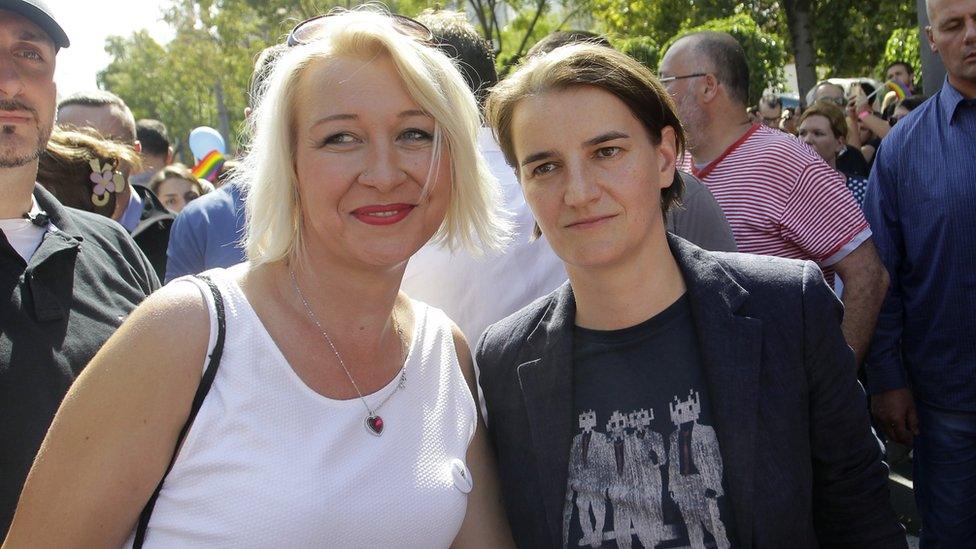
Ms Brnabic (R) posed for a photograph with Helena Vukovic, a transgender former Serbian Army officer
The marchers hope she will deliver legislative changes helping same-sex couples.
Serbia is a candidate to join the European Union, but the EU has said it needs to improve minority rights - including for lesbian, gay, bisexual and transgender people.

- Published16 June 2017
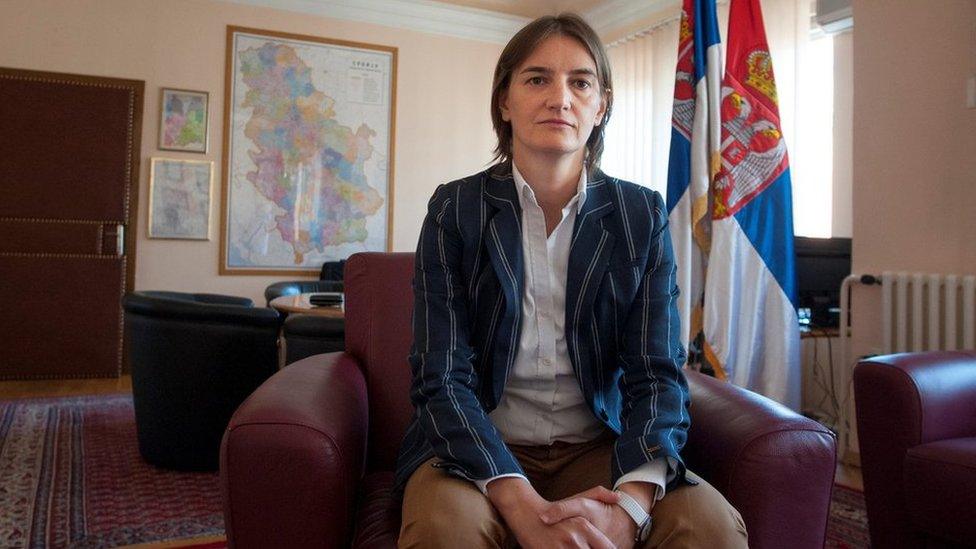
- Published28 January
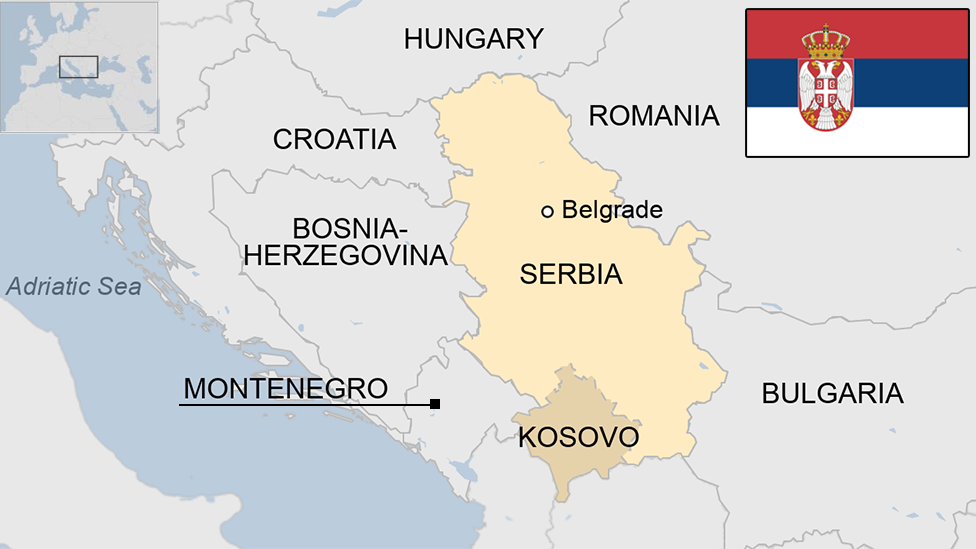
- Published28 September 2014
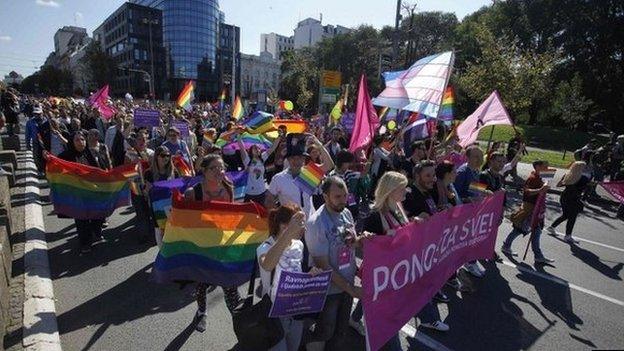
- Published13 September 2014
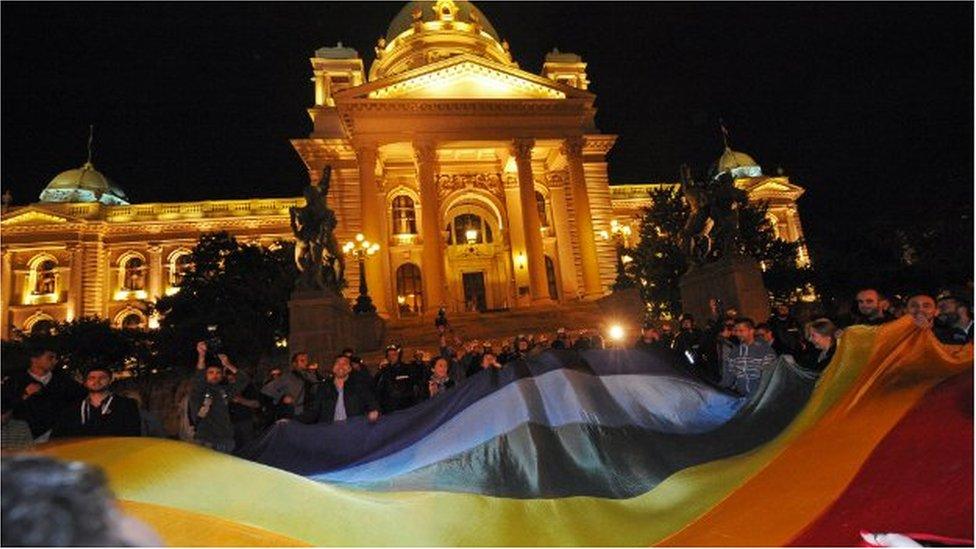
- Published4 October 2012
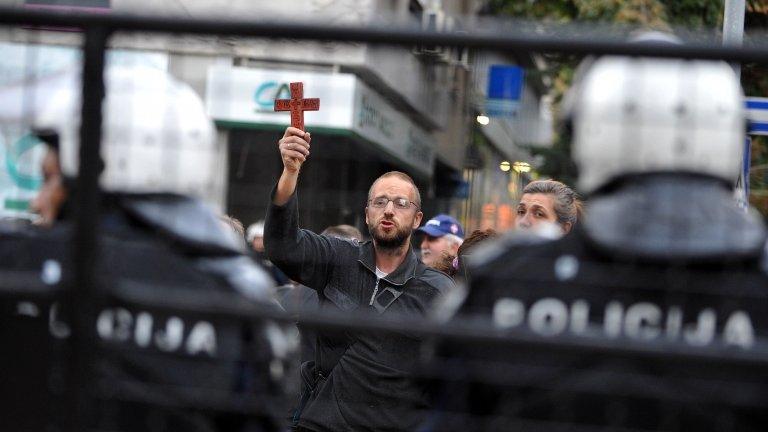
- Published10 October 2010